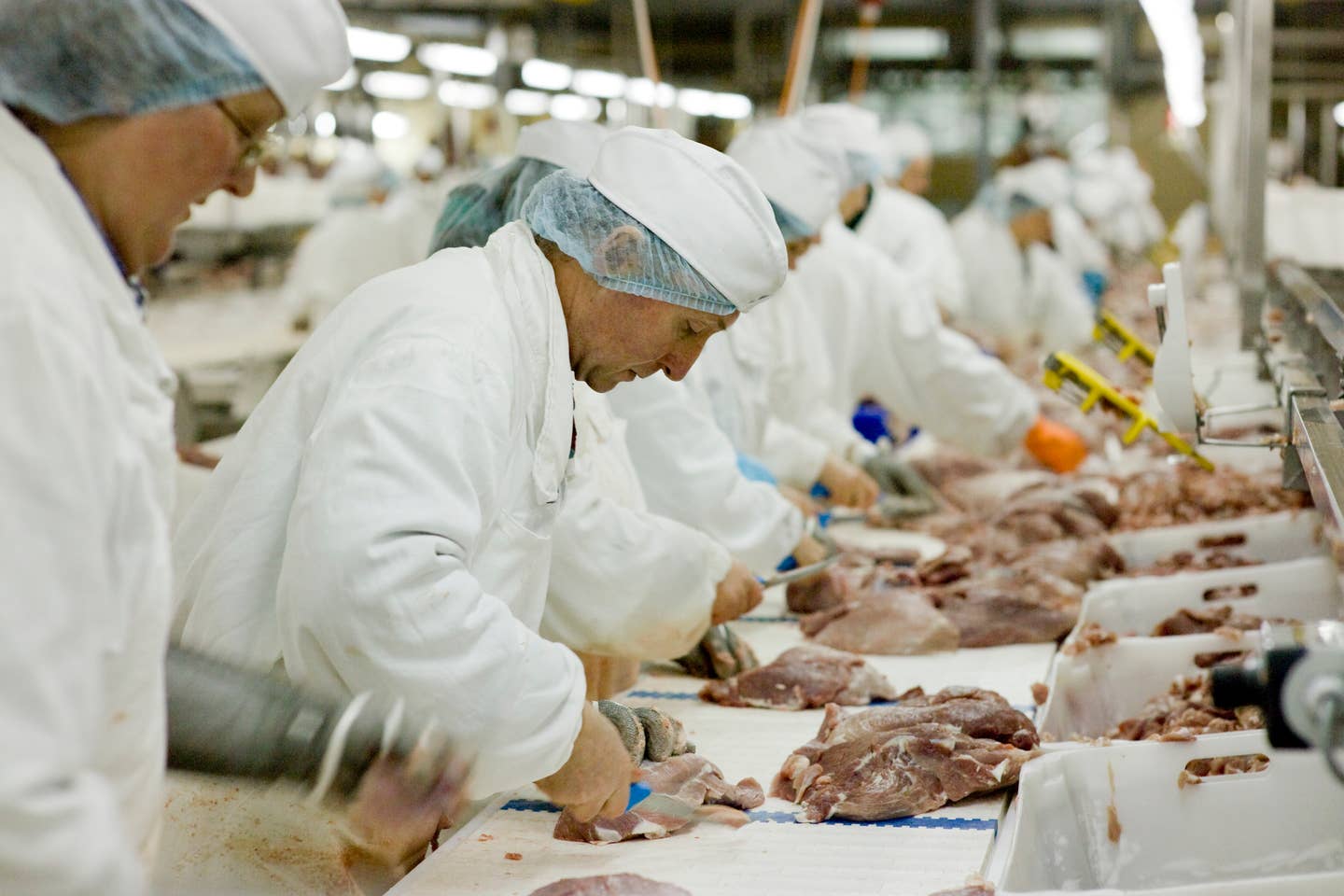
Meat Plants Struggle to Contain the Virus as COVID-19 Outbreaks Rise Among Workers
Cases of COVID-19 have nearly quadrupled at the major meat-processing plants in the past month according to a new analysis. Tyson Foods, Smithfield, and other meat companies, forced to reopen in the past weeks, have reported continuing rises of COVID-19 among workers, despite precautions to try to keep the plants and the personnel safe.
The Washington Post reports that Tyson has seen 7,000 cases whereas a few weeks ago it reported 1,600 cases. As the problem persists, shortages of meat in grocery stores is expected to get worse, and prices are expected to rise.
The Post reports that there are now more than 11,000 coronavirus cases within Tyson Foods, Smithfield Foods and JBS, and more than 60 people have died in the industry. [UPDATE: As of early June there were more than 20,000 cases of COVID-19 reported in meat processing plants across the US according to the Food and Environmental Reporting Network.}
Shortages of meat have benefited the non-meat alternatives such as Beyond Meat, which has lowered its prices, and Impossible Burgers which have staffed up in an effort to meet increasing demand.
During the pandemic, Americans say they are reaching for meatless meat in record numbers; nearly 23 percent of consumers surveyed last month say they are trying to eat a more plant-based diet during COVID-19. Meanwhile the sales of meatless meat are up 35 percent during the COVID-19 crisis (since mid-April).
Meat workers, represented by their Union, have been unable to stay safe back at the processing plants, despite the meat companies taking extra precautions, adding more ventilation, and offering protective gear. But the processing requires them to stand close together and the meat processing line has been allowed to speed up due to deregulation by the Trump administration. This makes the plants less safe for workers and for consumers. A PETA report quoted a USDA inspector as saying the accelerated production means feces and other filth or inedible material can get into the food and she warned against the rollback of regulation by the Trump administration that makes fast line production possible at plants straining to keep the food supply intact.
As scientists and researchers examine whether the virus can make its way into the meat, the group, Physicians Committee for Responsible Medicine (PCRM) has petitioned the USDA for the inspecting of meat, testing it for traces of virus. Most doctors believe the virus can not be transmitted this way but consumers are wary of the meat processing system and are eating more plant-based foods for their health.
As the COVID-19 cases continue to spike at meat plants, the opening of industry has become politicized with the Vice President praising the meat industry and Democratic Presidential Candidate Joe Biden warning that human life is on the line.
More From The Beet






